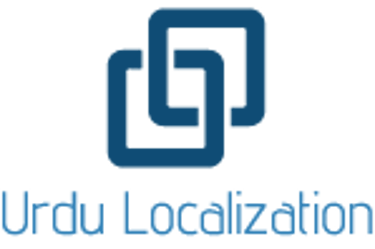
Why Professional Urdu Translators Are the Key to Legal and Government Communication
3 min read

When it comes to legal contracts, immigration documents, or government communications, accuracy is non-negotiable. A single mistranslated term can change meaning, cause delays, or even jeopardize compliance. This is why businesses, law firms, and public agencies increasingly rely on professional Urdu translators rather than machines. For Urdu-speaking citizens and communities, being able to access clear and reliable translations of official documents is not just a matter of convenience — it is their right.
The High Stakes of Legal Urdu Translation
Legal texts are different from ordinary content. They are packed with technical language, industry-specific terminology, and clauses where one misplaced word can alter obligations. AI-driven tools are often marketed as cost-saving solutions, but they cannot capture the complexity of legal Urdu translation. Only trained translators with expertise in both Urdu and English — and sometimes other languages — can ensure that meaning is preserved across systems of law. For businesses working internationally, this precision protects them from legal disputes, penalties, and misunderstandings.
Urdu to English and English to Urdu Expertise
Legal translation is never one-way. A Pakistani company bidding for an international project may need Urdu to English translations of contracts and compliance documents. Meanwhile, an overseas firm entering the South Asian market will require English to Urdu translation of policies, employment agreements, or tenders. In both directions, translators must be sensitive not only to language but also to legal frameworks. This two-way expertise cannot be replicated by machines that treat words in isolation rather than within their legal and cultural context.
Why Government Communication Must Prioritize Urdu
Governments that serve large Urdu-speaking populations — from Pakistan to diaspora communities in the UK, UAE, Canada, and the US — must communicate in Urdu effectively. Whether it’s a healthcare campaign, public safety announcement, or immigration procedure, the stakes are high. A mistranslation in this context is not just a mistake; it can lead to mistrust, confusion, or even harm. By investing in Urdu translation services, governments demonstrate respect and inclusivity, ensuring all citizens have equal access to critical information.
Confidentiality and Trust in Translation
Confidentiality is one of the most important concerns for legal and government clients. Contracts, case files, and official records often contain sensitive personal or financial information. Using unsecured machine tools puts this data at risk. Professional Urdu translators, however, work under strict confidentiality agreements and ethical standards. Secure document handling ensures that sensitive information stays protected, giving clients peace of mind while guaranteeing accuracy.
Proofreading and Editing for Flawless Delivery
Even after translation, legal and official texts undergo multiple checks. Urdu proofreading and editing services refine grammar, confirm consistent terminology, and check formatting so documents can be legally binding without ambiguity. Invoices, affidavits, court transcripts, or tender submissions must all read seamlessly, without contradictions or errors. This rigorous process is where professional translators and editors add the most value, ensuring final drafts are not only accurate but also polished and professional.
Human Translation vs. Machine: The Legal Reality
Machine translation tools may seem tempting for quick results, but they come with serious limitations in legal contexts. AI can mistranslate technical terms, misinterpret tone, or ignore formatting critical to contracts and official documents. A wrong word in a financial statement or a mistranslated clause in an agreement could lead to costly disputes. Human translators bridge this gap by ensuring every translation aligns with legal standards, cultural context, and professional expectations.
Building Trust with Urdu-Speaking Clients and Citizens
For law firms, accurate Urdu translation services help build trust with clients who may not be fluent in English but deserve to understand their rights and obligations fully. For governments, it strengthens relationships with citizens by showing that language is not a barrier to access. When trust is built through accurate translation, both institutions and individuals benefit from smoother communication and reduced risk of misunderstanding.
Accurate legal and government translation is not a luxury — it is an essential service. Professional Urdu translators safeguard meaning, maintain confidentiality, and deliver work that machines cannot replicate. Whether it’s a court transcript, a policy document, or a government service portal, human translation and localization ensure that Urdu-speaking audiences are not left behind. For clients, choosing expert translators is not just about words on paper — it is about protecting rights, building trust, and ensuring every message carries its intended authority.
